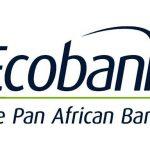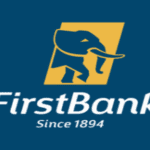Last Updated on July 1, 2024 by admin
Small businesses often face significant challenges when it comes to securing financing for their growth and expansion. This is where Small Business Administration (SBA) loans come into play, providing a lifeline for entrepreneurs seeking affordable and accessible funding options.
SBA loans are government-backed loans designed to support small businesses in various industries. These loans are offered by traditional lenders, such as banks and credit unions, but are guaranteed by the SBA.
The guarantee mitigates the risk for lenders, making it easier for them to provide funding to small businesses that may not meet conventional loan requirements. To be eligible for an SBA loan, borrowers must meet certain criteria set forth by the SBA.
While specific requirements may vary depending on the type of loan being sought, common prerequisites include having a strong credit history, demonstrating reasonable personal investment in the business, and providing a well-researched business plan.
There are several types of SBA loans available to borrowers based on their unique needs. These include 7(a) loans, CDC/504 loans, microloans, export working capital loans, and disaster assistance loans. Each loan type serves different purposes and has its own set of eligibility criteria.
With SBA loan “Small Business Administration,” Borrower can reduce risk and enable easier access to capital in the United states. SBA partners with lenders to help increase small business access to loans.
SBA was created in 1953 as a separate federal government agency with a view to aid, counsel, assist and protect the interests of small businesses, where it preserves free competitive enterprise, maintain and strengthen the economy of the United States.
Loans guaranteed by SBA range from small to large and can be used for most business purposes, including long-term fixed assets and operating capital. Some loan programs set restrictions on how you can use the funds, so check with an SBA-approved lender when requesting a loan. Your lender can match you with the right loan for your business needs.
You can also read: How to Qualify and requirement for SBA 7(a) Loan
How does the SBA help small businesses?
The SBA helps small businesses by linking them up with partner lenders for loans, providing requisite training that grows and sustains businesses, and enabling ideas into winning federal government contracts with ease.
Type of SBA Loans for borrowers
The various kind of SBA loan are: 7(a) loans, 504 loans,Microloans,
1. 7(a) loans
SBA’s most common loan program, which includes financial help for businesses with special requirements. it can be used for Short- and long-term working capital, Refinance current business debt and Purchase furniture, fixtures,Establishing a new business or assisting in the acquisition, operation or expansion of an existing business and supplies
This is the best option when real estate is part of a business purchase,The maximum loan amount for a 7(a) loan is $5 million
Who is eligible for SBA 7(a) loans
To be eligible 7(a) loan assistance, businesses must:
1. Operate for profit
2. Be considered a small business, as defined by SBA
3. Be engaged in, or propose to do business in, the United States or its possessions
4. Have reasonable invested equity
5. Use alternative financial resources, including personal assets, before seeking financial assistance
6. Be able to demonstrate a need for a loan
7. Use the funds for a sound business purpose
8. Not be delinquent on any existing debt obligations to the U.S. government
How to apply for SBA 7(a) loans
You are required to gather necessary documents before you could start processing your loan, however, SBA will advise you with existing guidelines.
1. Borrower information form: Complete SBA Form 1919 and submit it to an SBA-participating lender.
2. Background and financial statements: Complete both SBA Form 912 (statement of personal history) and SBA Form 413 (personal financial statement). These help SBA and other stakeholders assess your eligibility.
3. Business financial statements: Submit the following to help show your ability to repay a loan:
4. Provide a list of names and addresses of any subsidiaries and affiliates, including concerns, in which you hold a controlling interest or that are otherwise connected to you.
5. Provide a copy of the original business license or certificate of doing business. If your small business is a corporation, stamp your corporate seal on the SBA loan application form.
6.Loan application history: Include records of any loans you may have applied for in the past.
7. Income tax returns: Include signed personal and business federal income tax returns of your business’ principles for the previous three years.
Resumes: Include personal resumes for each principal.
8. Business overview and history: Provide a history of the business and its challenges. Include an explanation of why you need the SBA loan and how it will help your business.
9. Business lease: Include a copy of your business lease, or a note from your landlord, with the terms of the proposed lease.
If you are buying an existing business, gather the following information:
1. Current balance sheet and profit and loss statement
2. Federal income tax returns for the previous three years
3. Proposed bill of sale including the terms of sale
4. Asking price with schedule of inventory, machinery and equipment, and furniture and fixtures
5. Franchise, jobber, or licensing agreements
6. Proof of equity injection.
How do I pay back my 7(a) loan?
Loan repayment terms vary according to several factors.
1. Most 7(a) term loans are repaid with monthly payments of principal and interest
2. Payments stay the same for fixed-rate loans because the interest rate is constant
3. For variable rate loans, the lender can require a different payment amount when the interest rate changes
Also read: How to get a Small Business Loan without Collateral
2. SBA 504 loans
This Long-term, fixed rate financing of up to $5 million for major fixed assets.The CDC/504 Loan Program provides long-term, that promote business growth and job creation.This is available through Certified Development Companies (CDCs)
SBA 504 Loans cannot be made to businesses engaged in nonprofit, passive, or speculative activities. For additional information on eligibility criteria and loan application requirements, small businesses and lenders are encouraged to contact a Certified Development Company in their area.
The Interest rates for 504 loans is Pegged to an increment above the current market rate for 5-year and 10-year U.S. Treasury issues and Totals approximately 3 % of the debt, rate may be financed with the loan
A 504 loan can be used for a range of assets that promote business growth and job creation. These include the purchase or construction of:
1. Existing buildings or land
2. New facilities
3. Long-term machinery and equipment
Or the improvement or modernization of:
1. Land, streets, utilities, parking lots and landscaping
2. Existing facilities
Who is eligible for SBA 504 loans
To be eligible for a 504 loan, your business must:
1. Operate as a for-profit company in the United States or its possessions
2. Have a tangible net worth of less than $15 million
3. Have an average net income of less than $5 million after federal income taxes for the two years preceding your application
4. feasible business plan, good character and the ability to repay the loan.
Requirements For Obtaining An Sba Loan
Obtaining a Small Business Administration (SBA) loan can be a great financing option for entrepreneurs and small business owners. However, there are certain requirements that borrowers must meet in order to qualify for these loans. While the specific criteria may vary depending on the type of SBA loan being sought, there are some general requirements that most borrowers need to fulfill.
Firstly, one of the primary eligibility criteria is that the business must be classified as a small business according to the SBA’s size standards. These standards typically consider factors such as number of employees or average annual revenue to determine if a business qualifies as “small.”
Secondly, borrowers must demonstrate their ability to repay the loan. This involves providing financial statements, tax returns, and other relevant documents that depict the financial health and stability of their business.
Additionally, personal credit history is an important factor considered by lenders when evaluating loan applications. Borrowers with a good credit score are more likely to secure an SBA loan.
Furthermore, collateral may be required by some lenders as security for the loan. This could include personal or business assets such as real estate or equipment. Lastly, it is crucial for borrowers to have a solid business plan outlining their objectives and strategies for success.
How to apply for SBA 504 LOANS
504 loans are available exclusively through Certified Development Companies (CDCs). First, find a CDC in your area to ensure you are dealing with a qualified lender.
Then begin to prepare and assemble your 504 loan authorization package, using our 504 Authorization File Library to identify the documentation you will need to apply for your 504 CDC loan.
3. Microloans
This is a Smaller-size loan of up to $50,000 provided through SBA funding intermediaries.The microloan program helps small businesses and certain not-for-profit childcare centers start up and expand.The average microloan is about $13,000.
The Microloan is designated intermediary lenders, which are nonprofit community-based organizations with experience in lending as well as management and technical assistance.
Each intermediary lender has its own lending and credit requirements. Generally, intermediaries require some type of collateral as well as the personal guarantee of the business owner.
Microloans can be used for a variety of purposes that help small businesses expand. Use them when you need less than $50,000 to rebuild, re-open, repair, enhance, or improve your small business
How to apply for microloan
To apply for a microloan, work with an SBA-approved intermediary in your area. SBA-approved lenders make all credit decisions and set all terms for your microloan.
Source: sba.gov
- List of 9mobile/etisalat data Plan and subscription code - January 27, 2026
- How to buy data, Request and gift dataon Airtel - January 26, 2026
- How to buy Glo data plan and cancel data Renewal - January 24, 2026









